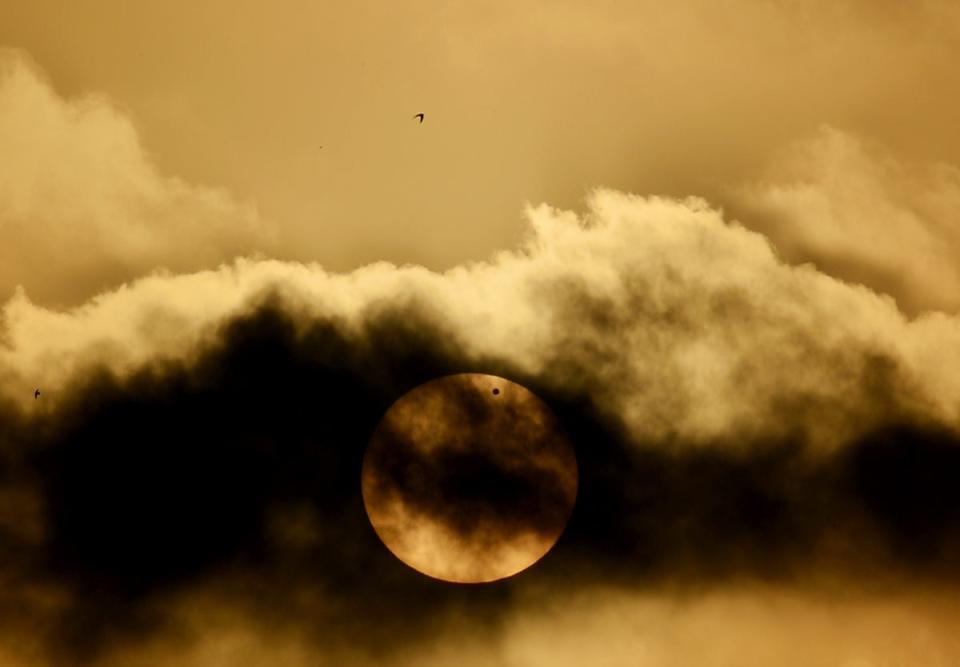Venus’s strange clouds are not explained by alien life, scientists say

The strange makeup of Venus’s atmosphere does not appear to be explained by alien life, according to new research.
Scientists have been debating for years whether Venus – our neighbouring planet – is home to extraterrestrial life in its clouds.
Such a discovery could help explain why there is such strange sulphur chemistry in the clouds over the planet.
But a new study from the University of Cambridge and reported in Nature Communications suggests that life cannot explain the strange composition of the atmosphere.
But the findings should be useful for studying the atmospheres of other, similar planets – and might help us find life outside of our solar system.
More imminently, however, the study suggests that hopes of alien life next door look more unlikely. If there were extraterrestrial life on a planet, it would probably leave behind evidence in its atmosphere, as it eats and lives – but no such evidence was found on Venus.
“We’ve spent the past two years trying to explain the weird sulphur chemistry we see in the clouds of Venus,” said co-author Dr Paul Rimmer from Cambridge’s Department of Earth Sciences. “Life is pretty good at weird chemistry, so we’ve been studying whether there’s a way to make life a potential explanation for what we see.”
In the study, researchers looked at how the chemical makeup of the atmosphere might change if there was something there using it for fuel.
“We looked at the sulphur-based ‘food’ available in the Venusian atmosphere – it’s not anything you or I would want to eat, but it is the main available energy source,” said Sean Jordan from Cambridge’s Institute of Astronomy, the paper’s first author. “If that food is being consumed by life, we should see evidence of that through specific chemicals being lost and gained in the atmosphere.”
The model found that the existence of life did not satisfyingly solve the problem of Venus’s atmospheric chemistry. Instead, something strange and unaccounted for must be happening on the planet.
Still, the researchers hope to use the work when they are analysing new atmospheric data from the James Webb Space Telescope, which will start sending back pictures later this year. Scientists will be able to look for the same kinds of sulphur molecules – and use their work on Venus to better understand the atmospheres of similar planets elsewhere.
“Even if ‘our’ Venus is dead, it’s possible that Venus-like planets in other systems could host life,” said Dr Rimmer. “We can take what we’ve learned here and apply it to exoplanetary systems – this is just the beginning.”

 Yahoo Finance
Yahoo Finance 